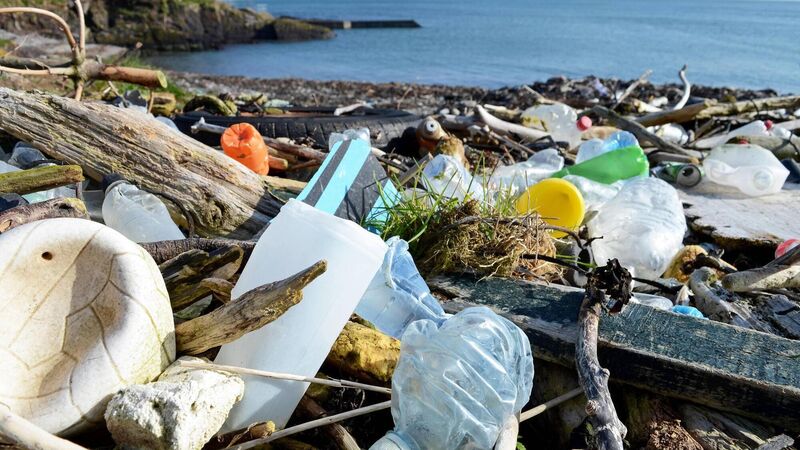Global leaders begin bid to address plastic pollution

Litter and washed up on a beach in County Cork. Plastic waste has become a global menace polluting landscapes and waterways, producing plastics involves releasing greenhouse gas emissions.
Global leaders will gather in Canada's capital this week to discuss progress in drafting a first-ever global treaty to rein in soaring plastic pollution by the end of the year.
The hoped-for treaty, due to be agreed at the end of this year, could be the most significant deal relating to climate-warming emissions and environmental protection since the 2015 Paris Agreement, which got 195 parties to agree to keep global temperatures from rising beyond 1.5C.
CLIMATE & SUSTAINABILITY HUB













